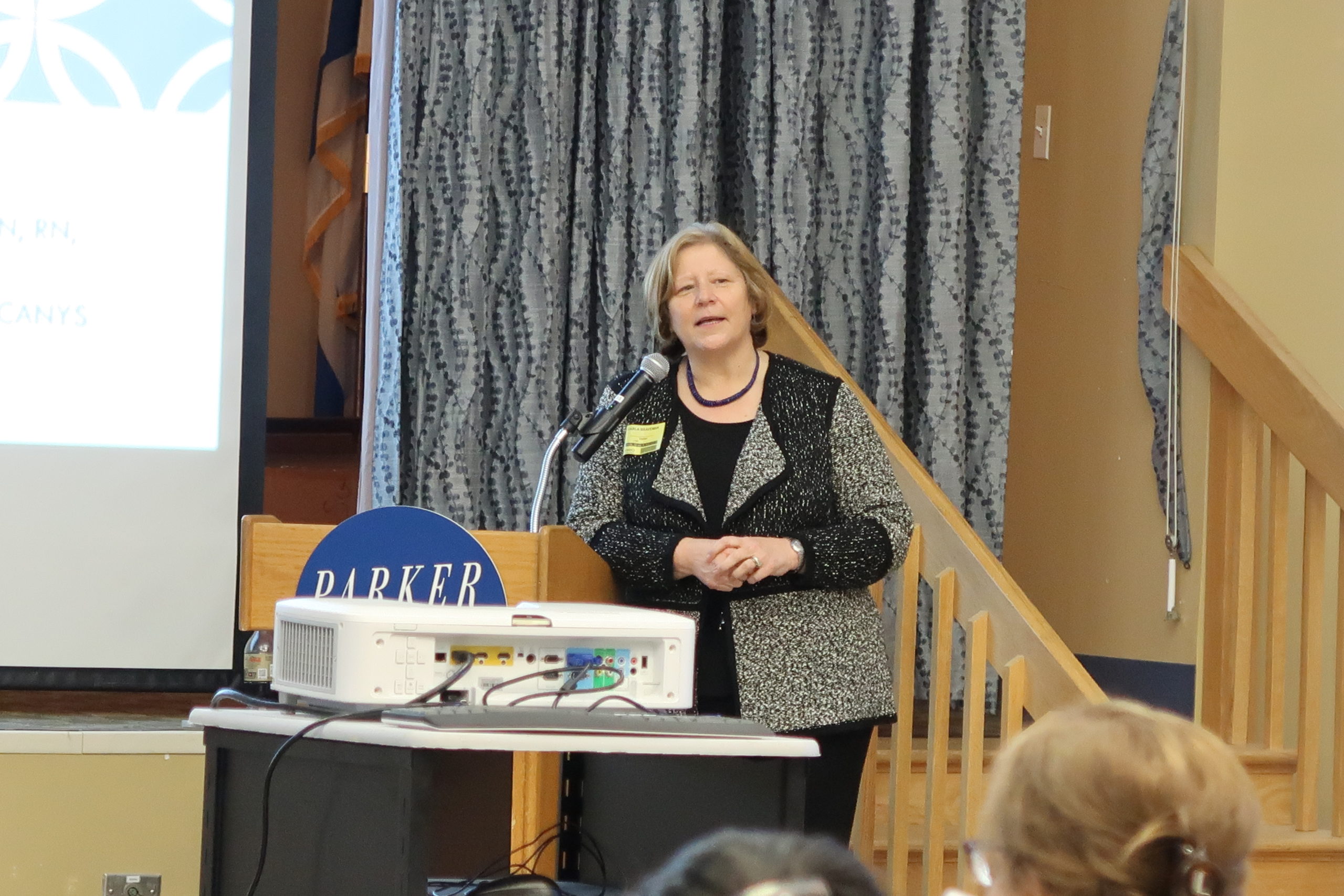Parker Jewish Institute for Health Care and Rehabilitation hosted “Hospice into the Future,” an informative seminar for hospital and skilled nursing facility staff, health care service providers and clinical professionals, on Jan. 16.
Focusing on the current state of hospice and palliative care, the seminar was given by Carla Braveman, president and CEO of Hospice and Palliative Care Association of New York State. The program provided insights to Parker administrators and clinicians, as well as guests from other health care facilities.
Braveman started with a brief history of hospice.
The modern hospice movement began in England in 1967 by founder Dame Cecile Saunders, a nurse who became a social worker and then a physician. In 1974, the first US hospice was launched in Connecticut.
There were 13 hospice demonstration projects started across the US in 1979, and later in her career Braveman became involved with one of these. In 1983, for the first time in America, Medicare started providing hospice benefit coverage and in 1986, hospice became a permanent part of Medicare. “In fact, coverage for hospice service is the newest and most generous benefit provided by our Medicare system,” she noted.
A frequently asked question is where did the “six-month prognosis” come from? Braveman said in the early days, hospice only took care of cancer patients, because they had a very predictable trajectory of illness and clinicians knew that they were going to die.
There was no second, third or fourth course of chemotherapy, “it was either the chemo fixed you or you were going to hospice,” she said. When the burgeoning industry submitted recommendations to Congress, someone suggested a hospice Medicare benefit of six months. “There was no science behind that six month prognosis, and ever since then we have been trying to change it,” she added.
Hospice was able to obtain more Medicare coverage in the 1980’s because several studies showed that for every dollar spent on hospice, at least $1.50 to $2.00 per patient is saved. “With hospice we look at your symptoms and treat you from there.
In a more recent study of hospice patients with a non-cancer diagnosis, savings occurred for 153 days, and for hospice patients with a cancer diagnoses, the savings occurred for 225 days.
That’s because we already know the diagnosis and we treat symptoms without subjecting patients to aggressive testing, MRIs, ventilators and other expensive procedures.” (Medicaid also provides hospice benefits, and patients can be placed earlier and with a one year prognosis.)
Also discussed were the latest issues of concern to HPCANYS. What is the future role of hospice with the new payment model? How will palliative care evolve? “People in Washington, DC are now actually talking about a Palliative Care Benefit,” Braveman said. “A Palliative Care Benefit is not a Palliative Care doctor seeing patients.
A Palliative Care Benefit is a hospice-like situation where the patient doesn’t have six months or less to live, but is based on a longer trajectory of an illness and whether they want curative treatment or comfort care.”
Michael N. Rosenblut, Parker Jewish Institute president and CEO, said “Hospice continues to be an underutilized benefit, that may potentially enable a patient and their family, to receive additional resources, when they are most in need.”
Braveman said that hospice enjoys some of the overall highest satisfaction ratings, when compared with hospitals, home care agencies and other providers. “And, Parker Jewish is one of New York’s premier hospice programs,” she proclaimed.
The Community/Inpatient Hospice at Parker provides comfort, relief, and peace of mind to individuals with advanced or life-limiting illness and their families. Parker’s is an intimate and unique program that provides personalized care to ensure a patient’s comfort, enhance quality of life, preserve one’s dignity and respect individual choices. They can be reached 24-hours-a-day, 7-days-a-week at (516) 586-1500.



